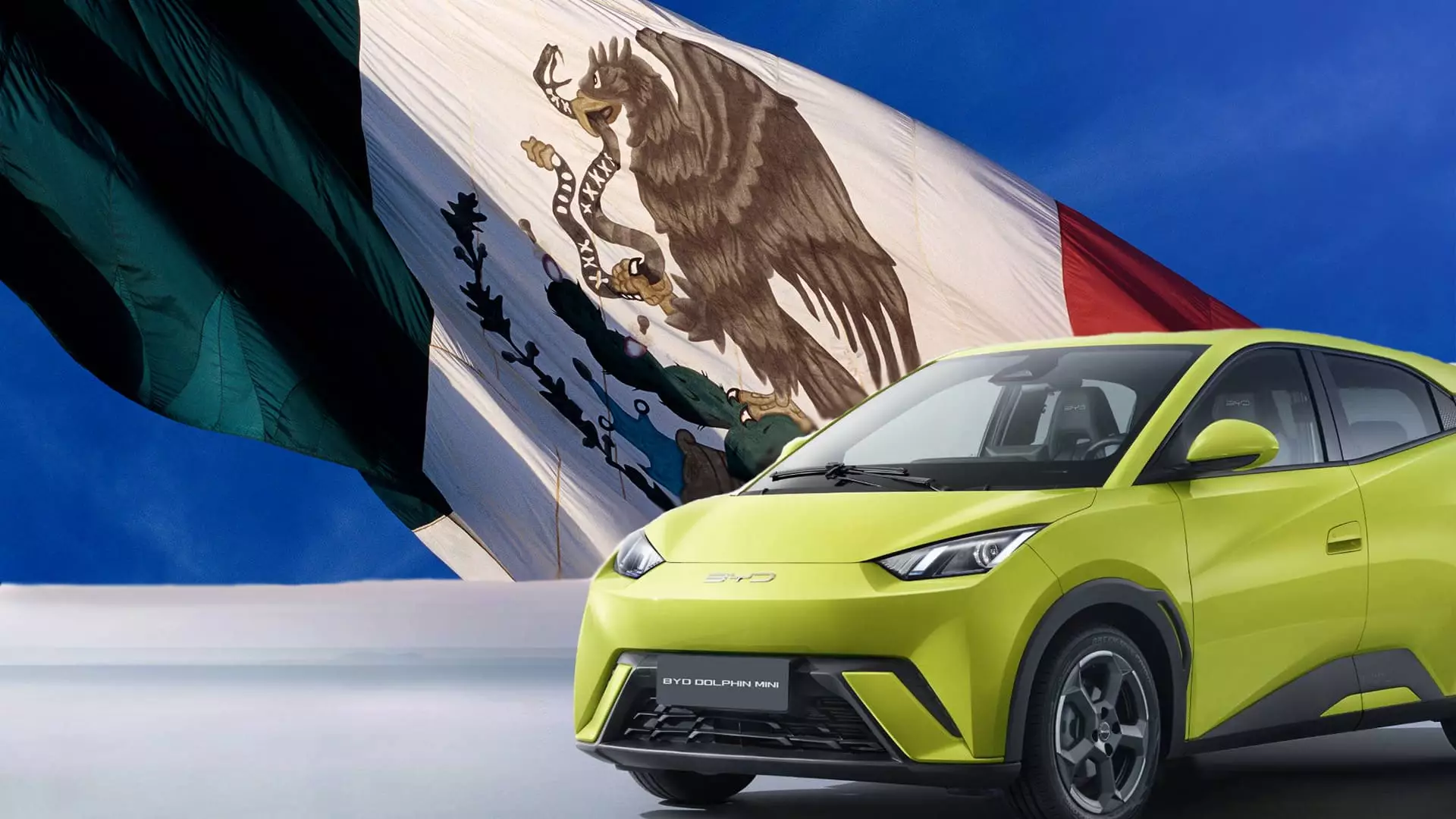Chinese electric vehicle manufacturers have been increasingly looking towards Mexico as a promising market to sell their high-tech cars, especially since they have been blocked from entering the U.S. market due to tariffs. The affordability of Chinese EVs, such as the Dolphin Mini by BYD, has attracted Mexican customers who may have been initially wary of electric vehicles. With China being the leading car supplier to Mexico last year, exporting $4.6 billion worth of vehicles, it is clear that Chinese automakers have made a strong impression in the country.
As Chinese EV makers explore setting up factories in Mexico, U.S. officials have raised concerns that Mexico could potentially be used as a “backdoor” for Chinese electric vehicles to enter the American market. The worry is that Chinese automakers may take advantage of the United States-Mexico-Canada Agreement (USMCA) to export EVs duty-free to the U.S. if they can prove that the building materials are sourced locally in Mexico. This is seen as a circumvention tactic that raises alarms among U.S. lawmakers and auto companies.
Trade Strategy of Chinese Automakers
The attraction of Mexico as a production platform lies in its free trade access to the American market under the USMCA. Chinese automakers, including BYD, have been eyeing Mexico as a strategic location to expand their presence in North America. However, this move has sparked concerns that Chinese companies could be using Mexico as a way to circumvent trade restrictions and gain entry into the American market. U.S. officials fear that if Chinese EV makers establish themselves in Mexico, they could pose a significant threat to American automakers due to lower production costs.
In response to the growing presence of Chinese electric vehicles, U.S. President Joe Biden announced a 100% tariff on Chinese EVs in May. The U.S. government aims to protect its emerging EV industry, which is still in its early stages of development. By imposing tariffs, the U.S. seeks to safeguard its domestic automakers and prevent foreign competition from undercutting the market. However, experts warn that the pressure from the U.S. could strain Mexico’s delicate balance of maintaining its relationship with America while also attracting Chinese investment.
As Chinese electric vehicle makers continue to expand their presence in Mexico, concerns have been raised about the potential consequences for the U.S. auto industry. The fear of Chinese EVs entering the American market through Mexico has prompted U.S. officials to take action to protect domestic manufacturers. The implications of this trade strategy by Chinese automakers remain uncertain, but the ongoing debate highlights the complex dynamics of international trade and competition in the electric vehicle market.

